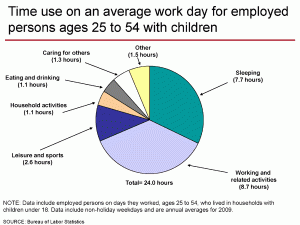I’m reviewing the final draft (actually, the pre-publication draft) of my new book.
But, I’m not happy with the current intro: it talks about the Roadmap To Riches, but that’s not really what this book is about. My next one, certainly, but not this one.
I just added an epilogue based on this post (almost word for word), and I want to do something similar for the introduction.
You see, I feel that while the subject of personal finance – a.k.a. money – is supposed to be entirely rational …
… it’s actually totally the opposite.
I believe that all discussions of money are entirely rooted in emotion, then our point of view is justified rationally.
The reason for this is that our lives and our money have become so intertwined that it’s hard … nay, impossible … to separate one from the other.
Don’t believe me?
Well, do you think you’re totally rational on the subject of money? Do you think that your life comes first, and money is only a tool?
Then let’s test that, right here, right now: you have 24 hours in an ‘average working day’, how do you spend it?
If you are anything like the average US worker, you spend an ‘average work day’ (that’s around 2/3 of the average year) sleeping, eating, and maintaining your house and your family.
You spend the bulk of what’s left (8.7 hours: the largest chunk of your day) earning money. Leaving a sliver of ‘life’ for you.
Now, think about how much of that tiny slice of life you then spend thinking, worrying, arguing, balancing and maintaining your money?
And, you’ll do this through the entire 40+ years of your working life 🙁
I rest my case.
So, the angle that I want to take with my book’s intro is this:
If you were to script your life, would you choose:
– Study hard so that you can get a great job, and
– Work hard at the job – eking out the occasional high point (landing a big account, making the boss happy, bringing a new product to market, etc.) – just to earn money, and
– Spend what you have to just to support your family, saving the bulk of what’s left over just so you can retire at 60+ to do … what?
OR, would you script for yourself something like:
– Travel the world, and
– Live large on the world’s stage, and
– Give back to others,
… and, so on?
The restriction on the latter probably being money and time (and, if you had the money, you could create the time, right?).
My point?
Doesn’t it seem as though we live our lives according to money’s script …
… rather than putting money in it’s proper place, which is simply as a tool to support our Life’s Script?
What do you think? Am I on the right track?










